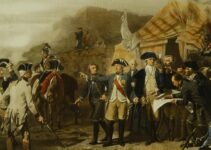Thomas More’s “Utopia” is a renowned work of Renaissance literature and political philosophy that offers a unique perspective on an ideal society. One of the distinctive features of this work is the use of anecdotes, which provide valuable insights into the fictional world of Utopia and the author’s own commentary on the society of his time.
In this article, we will explore the meaning and significance of anecdotes in “Utopia” and identify specific lines that exemplify this narrative technique.
It is undeniable that everything seems unbelievable to us in proportion to how it departs from established conventions, but a wise judge will not be surprised to learn that given how different their constitution is from ours, how much gold and silver they value should be measured, etc.

The Anemolian ambassadors who visited Amaurot when I was there provided the clearest illustration of the opposing impressions that various practises have on people.
However, they much more appreciate and loathe the foolishness of individuals who, when they see a wealthy man, act foolishly despite the fact that they owe him nothing and are in no way dependent on his wealth.
Read Also:
- Science Plays Now. Long Game. But
- How Did Helen Keller Fly A Plane
- Valiant Ambition: George Washington, Benedict Arnold, and the Fate of the American Revolution
Understanding Anecdotes in “Utopia”
Anecdotes, in the context of literature, refer to short and often humorous or insightful narratives that illustrate a point or emphasize a particular aspect of a story.
In “Utopia,” Thomas More employs anecdotes to enhance the reader’s understanding of the Utopian society, its customs, and his own critical observations on the shortcomings of European society in the 16th century.
Read the Utopia Excerpt.
In their large council at Amaurot, to which three representatives from each town are sent once a year, they examine which towns are awash in food and which are lacking in order for the one to be supplied by the other.
This is done without any sort of exchange because, depending on their abundance or scarcity, they supply or are supplied from one another, so that the entire island is, in fact, like one big family.
This excerpt’s main point is that Utopians regularly try to help those in need. Which specifics best bolster this main idea?
The use of anecdotes in “Utopia” serves several purposes:
- Illustrating Utopian Customs: Anecdotes provide concrete examples of the customs and practices in Utopia, making the fictional society more vivid and relatable to readers.
- Social Commentary: More uses anecdotes to critique the flaws and injustices he observes in his own society. Through these stories, he indirectly challenges the prevailing norms of his time.
- Engaging the Reader: Anecdotes add an element of storytelling that engages the reader’s interest and helps convey complex ideas in a more accessible manner.
- Highlighting Contrasts: By juxtaposing Utopian customs with those of Europe, More underscores the differences and contradictions between the two societies.
Identifying Anecdotes in “Utopia”
While “Utopia” is rich with anecdotes, one notable example comes from Book I, where More describes the Utopians’ attitude toward gold and wealth:
“They find pearls on their coasts, and diamonds and carbuncles on their rocks; they do not look after them, but, if they find them by chance, they polish them, and with them they adorn their children, who are delighted with them, and glory in them during their childhood;
But when they grow to years, and see that none but children use such baubles, they of their own accord, without being bid by their parents, lay them aside, and would be as much ashamed to use them afterwards as children among us, when they come to years, are of their puppets and other toys.”
In this passage, More describes how the Utopians treat precious gems as mere baubles during childhood, with children delighting in their beauty. However, as they grow older and mature, they voluntarily set aside these precious stones, considering them as childish toys.
This anecdote illustrates the Utopian perspective on wealth and material possessions, emphasizing their detachment from materialism and their focus on more meaningful pursuits.
Significance of the Anecdote
This anecdote from “Utopia” serves to highlight several important aspects of the Utopian society and More’s critique of European culture:
- Detachment from Materialism: The Utopians’ attitude toward precious gems reflects their detachment from material possessions. They value more intangible and communal aspects of life over personal wealth and ostentation.
- Emphasis on Education: The anecdote underscores the importance of education and maturity in the Utopian society. As children grow, they naturally prioritize intellectual and moral development over material pursuits.
- Critique of European Society: More subtly criticizes the European obsession with wealth and the superficiality of materialism. By contrasting Utopian values with those of his contemporaries, he invites readers to reflect on the shortcomings of their own society.
- Utopian Idealism: This anecdote exemplifies the idealism that characterizes Utopian society. More presents a vision of a society where individuals prioritize the common good over personal gain, a vision that challenges the prevailing norms of his time.
Read Also:
- All My Friends Are Going To Be Strangers
- Tell Me How Long The Train’s Been Gone
- Why Is The Super Bowl Ball So Dark
Final Words
The use of anecdotes in Thomas More’s “Utopia” is a powerful narrative device that enriches the reader’s understanding of the Utopian society and serves as a vehicle for More’s critique of European culture.
The example provided here, where precious gems are treated as child’s play, illustrates the Utopians’ values of detachment from materialism, the importance of education, and the idealistic vision of their society.
However, after the ambassadors had spent a day with them and observed such a large amount of gold in their homes (which was greatly despised by them as it was revered in other countries), as well as seeing more gold and silver in the chains and fetters of one slave than in all of their ornaments combined.
their plumes fell, and they were ashamed of all that glory for which they had formed a value for themselves, and as a result, they put it aside.
This particular example demonstrates how to use an account of an incident to illustrate a wider point—namely, that wealth is unimportant to Utopians. It’s best characterised as a (n)


